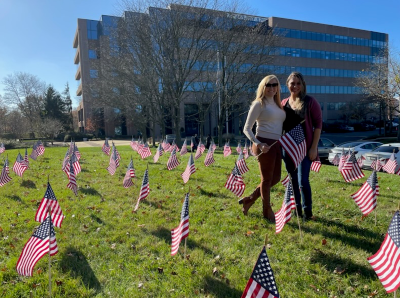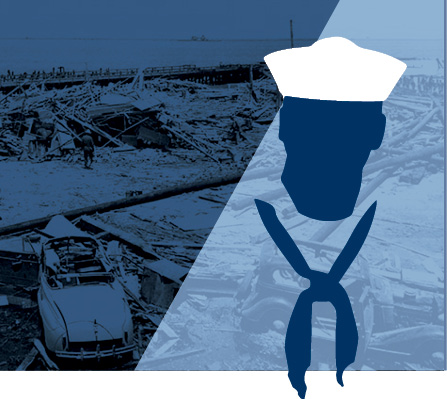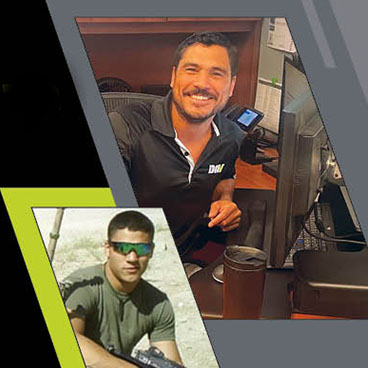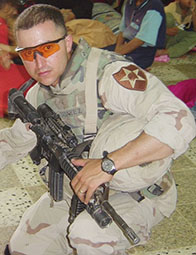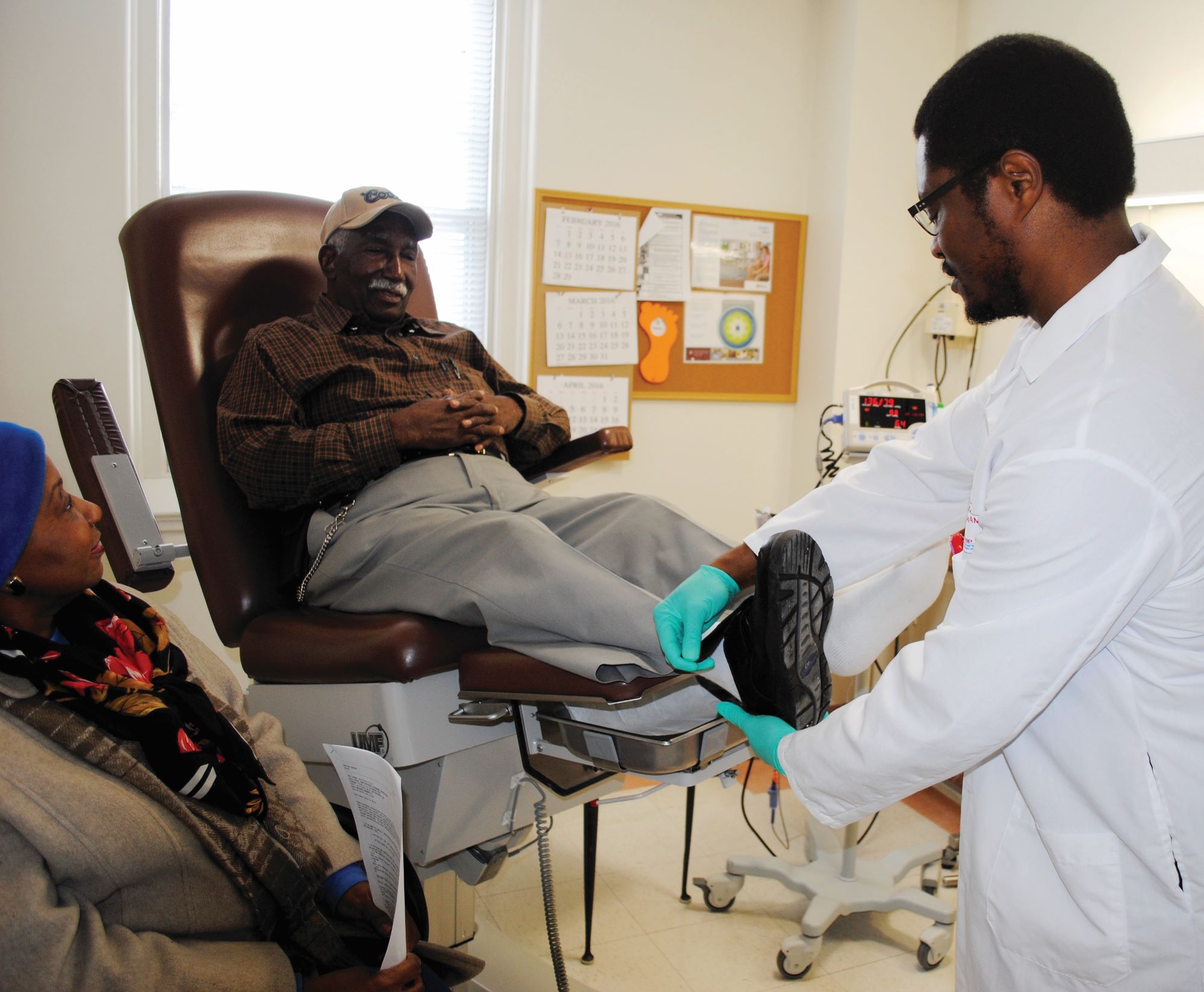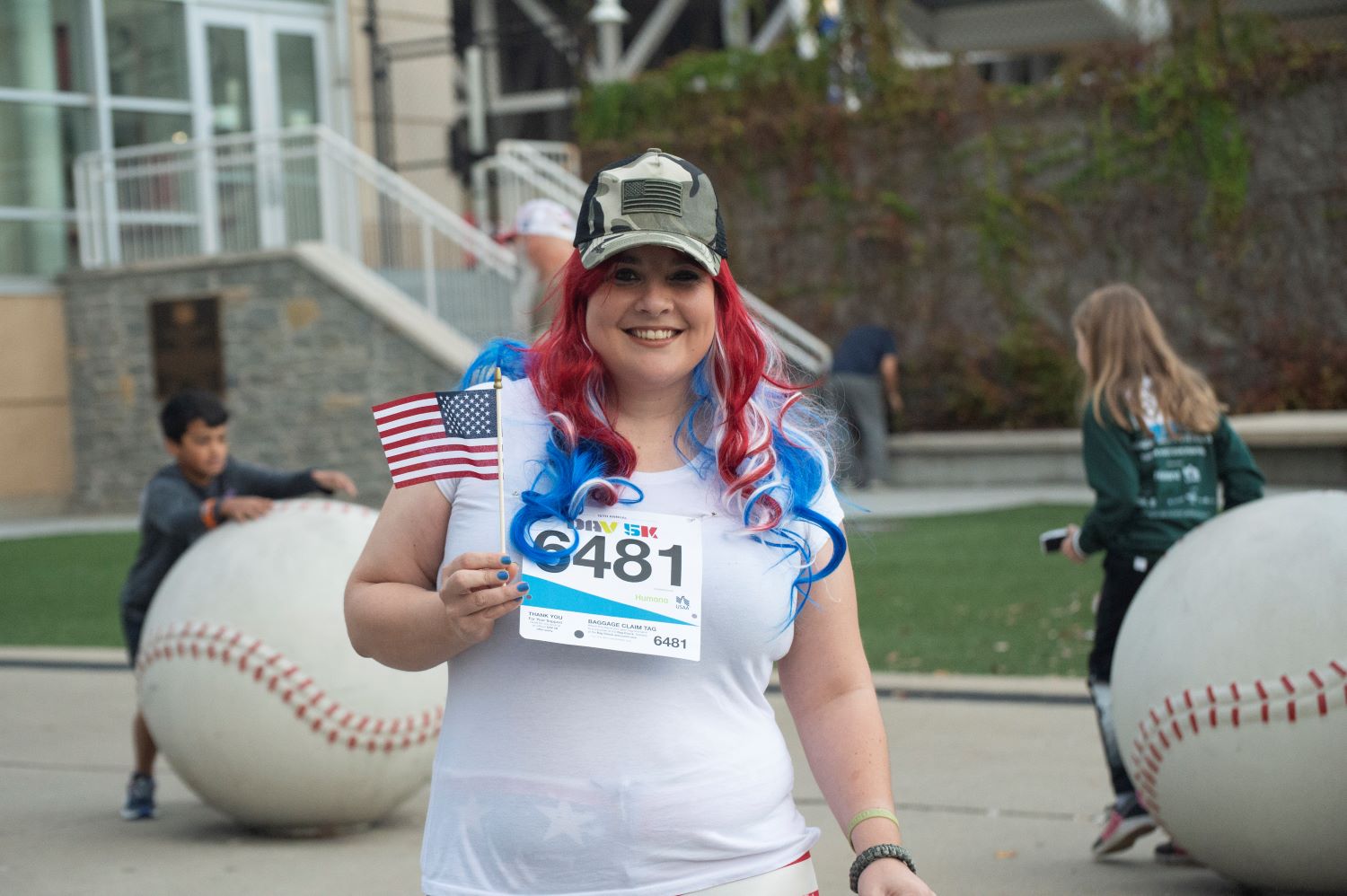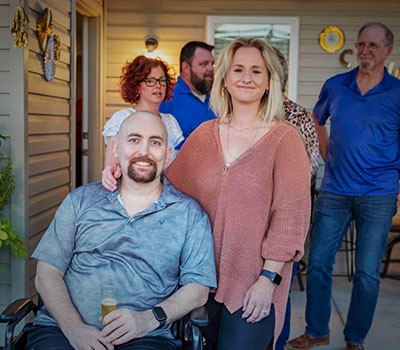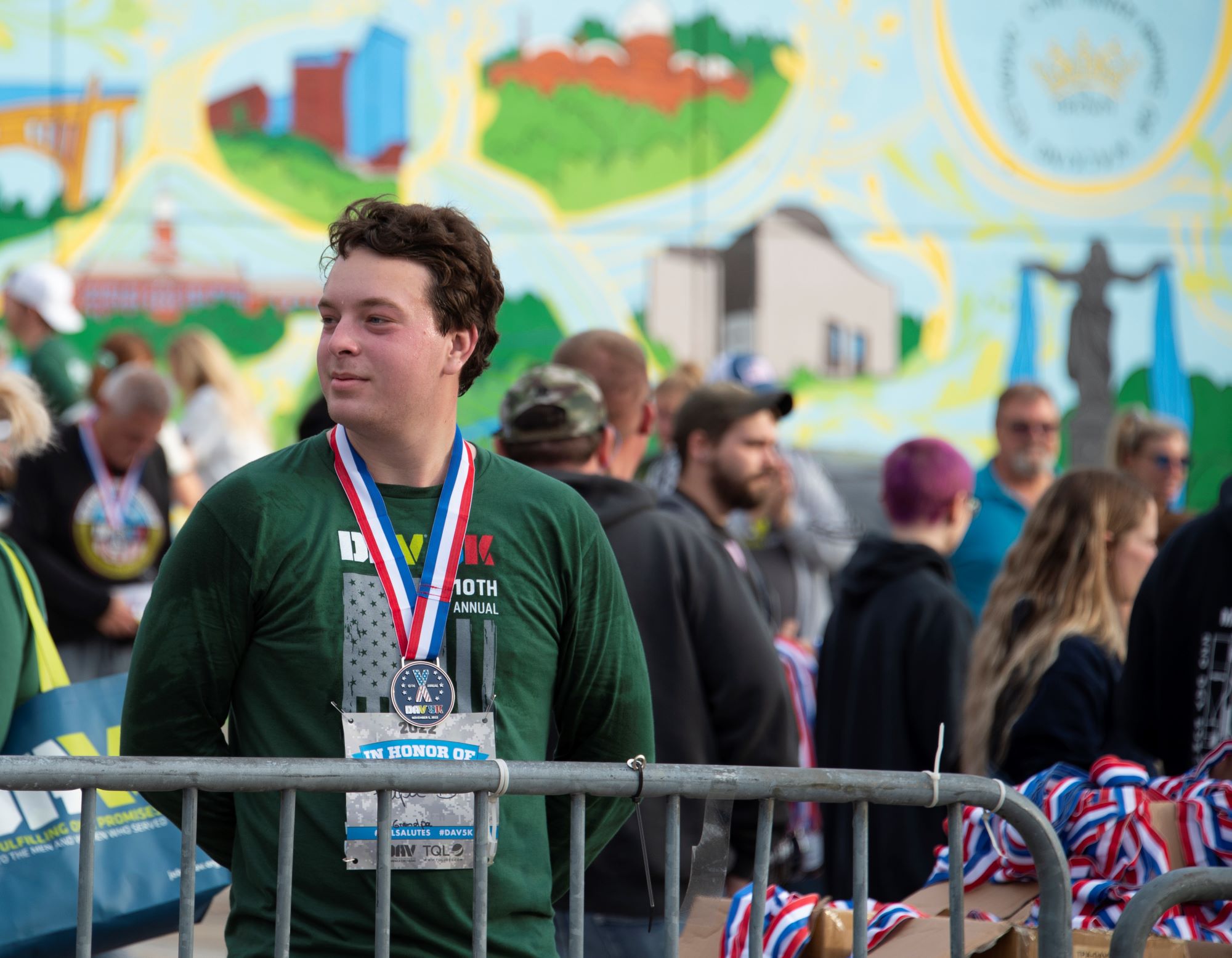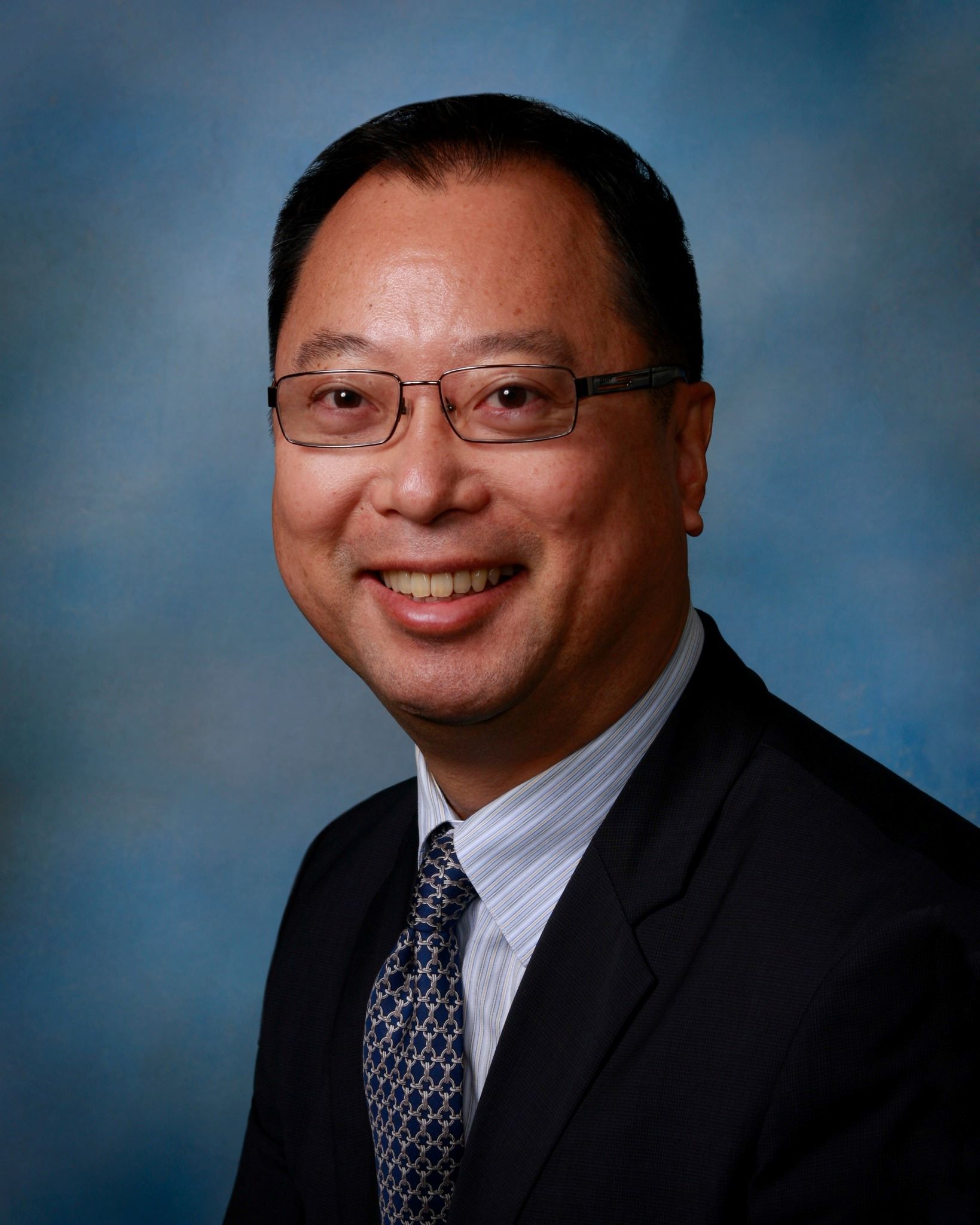Bringing Peace to the Peacekeeper
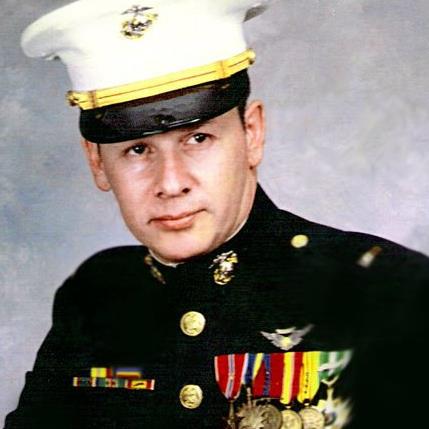
Deep bonds and diligent advocacy
Robert T. Jordan always wanted to be a Marine. Born during the Great Depression and growing up throughout World War II, he watched Marines return from the Pacific and admired their presence, which struck him as “proud, good people.”
During his junior year of high school, Jordan fulfilled his dream when he enlisted two weeks after his 17th birthday — on November 14,1954 during the Korean War — and was soon off to recruit training at Parris Island, S.C.
“When the first sergeant found out that I hadn’t graduated, he urged me to take the GED,” said Jordan. “I had a score of 124, which, if I had graduated from school, would have been qualified to go in as an officer.”
After completing the test, Jordan’s mother picked up his diploma for him while he served as a rifleman and scout observer for eight months with 2nd Battalion, 8th Marine Regiment in the Mediterranean during the Suez Crisis.
Service taps into talents
Jordan was then assigned to security duty at Clarksville, Tennessee, where he joined the Marine Corps Drum and Bugle Corps and volunteered to provide art to the command for special events. He married his late wife, Midge, at that time and planned to leave the Corps and go to college to study art.
"You are a good Marine," said the first sergeant. "What will the Corps do if we lose all our good Marines?"
Once again, a first sergeant had intervened, convincing him to re-enlist.
Jordan learned to draft maps, create signs, paint portraits and draw cartoons—all which led him to the Training Aids Library at Quantico, Virginia, in 1960, where he illustrated prototypes for future weapons for the Marine Corps Demonstration Team. Jordan then transferred to the Public Affairs Office at the 1st Marine Corps District Headquarters in Garden City, N.Y. where he illustrated a variety of art work, slide presentations and murals for the Marines from 1965 until 1968.
During that time, he met celebrities who were reserve Marine Corps officers. He also learned to write, take photos and perform as a broadcaster. Jordan was tasked to serve on numerous funerals as the war in Vietnam was raging and young Marines were dying. He was also training young Marines who had returned fresh from combat in hand-to-hand combat. He felt that he needed to do his part in Vietnam.
He decided that his best chance to serve in combat was to cross train as a combat correspondent. He was approved shortly after he applied and was immediately assigned to the Marine Corps Press Center in Danang, South Vietnam. During 13 months, Jordan participated in over eight combat operations. He was tasked to escort international TV and radio teams into and out of combat, completing more than 200 close combat escort missions and 40 air combat missions before returning home. He was awarded the Bronze Star with "V" for valor, the Air Medal, Combat Action Ribbon and Combat Aircrew Wings.
When Jordan returned to the U.S., he was briefly assigned as the noncommissioned officer in charge of the broadcast department at Camp Lejeune, North Carolina, but then the Marine Corps sent him to the Navy Photojournalism Course at Syracuse University. He graduated with honors and a short time later was selected as a limited duty officer. In that role, he served as a public affairs officer, broadcast officer and photographic officer.
“The Marine Corps is such a small organization and you get to know each other,” said Jordan. “If you know what you’re doing, and what you want to do–and keep your record clean–the Marine Corps will encourage you to do what you want to do. That’s the way my career started.”
It was around December 1982 that Jordan was on independent duty in Atlanta when he heard that his public affairs counterpart in Philadelphia was in Beirut, Lebanon.
“Our active duty [public affairs officers] were very engaged with getting ready for the situation going on in Central America. Headquarters wanted us to go [to Beirut] for 90 days or so and fill in,” Jordan recalled. “I said, 'You know I’m retiring this year?' and they said, 'You can do that when you get back.'”
A peacekeeper in Beirut
Jordan packed his bags and headed to Beirut in August 1983 .
When he arrived, he was told that they were not there to fight but were there as "peace keepers." He remembers that as his “foreboding deepened" he was concerned that it would be his sad duty to report the first combat casualties to the Corps since Vietnam.
On the morning of October 23, 1983, that feeling became a reality when a yellow Mercedes truck loaded with twelve thousand pounds of explosives sped into the Battalion Headquarters and barracks to slaughter 241 American military members as they slept.
“At 6:22, the loudest sound I’d ever heard, including in Vietnam, rattled the whole building and blew down the steel door next to me,” said Jordan. “Fragmented glass blew inward from the ceiling. You could see blue sky where the ceiling was missing.”
Jordan witnessed injuries and death throughout the rubble. Though he had served a 13-month combat tour previously, it was on that October morning during his 100 days in Beirut that was particularly life-altering. Responsible for responding to the media, Jordan thought, “What am I going to tell these people?”
"I had read a book by a British information officer who witnessed the killing of Lord Mountbatten and his grandson and the grandson's friend by blowing up Mountbatten's yacht," Jordan said. "He said that the only way to fight terror is to rub the public's face in it, showing the inhumanity of the act and focusing on the heroics of the responders.
“I immediately formed several groups, each led by one of my staff to walk them around the rubble and the teams scrambling to save the survivors and to recover the dead,” Jordan said. “I also wanted to display as many alive Marines as I could to help their loved ones to not lose hope."
AT&T volunteered to provide three overseas lines, which Jordan and his staff used to allow Marines, sailors and soldiers to call home to ease the anguish of their loved ones.
DAV brings peace to the peacekeeper
Jordan honorably served in the Marine Corps from 1954 to 1984, retiring as a major. After his retirement, he enjoyed a lengthy and successful publishing and writing career in the public sector. But eventually, age and health issues took their toll. Agent Orange exposure during his time in Vietnam resulted in a diagnosis of cancer. He filed a disability claim but found his road to benefits blocked. That’s when he reached out to DAV National Service Officer Don Inns. The two shared a common bond as Marines and combat veterans of Beirut. Their bond was cemented after military service through the Beirut Veterans of America, which Jordan founded.
“I probably saw Don in Beirut but we didn’t meet until afterward, through Beirut Veterans of America,” said Jordan.
The two have shared life’s joys and sorrows—the passing of the major’s first wife and meeting his second wife, Evi, at a Charlie Company 1/8 Dinner of Remembrance that Don organized. Evi attended the dinner in remembrance of her first husband, Sgt. Manuel "Manny" Cox, who was killed defending Check Point 76 east of the Beirut International Airport two days after Evi gave birth to their son, Anthony.
Jordan became a respected figure in Inns’ life. Jordan walked Inns’ mother down the aisle at his wedding and read the Prayers of the Faithful during the ceremony. From the bunkers of Beirut in 1983, to the altar of Bellarmine Chapel at Cincinnati’s Xavier University in 1997, the two Marines were always faithful. As a DAV national service officer, Inns helped Jordan secure the benefits he’d earned through decades of service to his country.
Jordan’s original claim for benefits was filed in November 2014. Pending for months, it seemed no end was in sight. When DAV assumed power of attorney in April 2015, a decision for service connection was granted a month later. Jordan could finally focus on healing.
But DAV’s advocacy didn’t end with the original claim. As age and infirmity crept in, a claim for increase, secondary, and supplemental issues was warranted and successfully completed. Today, at 83, Jordan knows he’s made a difference in many lives across the globe and is grateful for the difference DAV made in his own life.
“You are our hero! Evi is crying tears of joy. We can’t thank you enough,” Jordan told Inns when he learned the good news about his claim.
Jordan said, “God has blessed you with the unique ability to simplify the VA ‘Gordian Knot’ so that veterans may cut through all the bureaucratic barriers that are designed to withhold the compensation that they have already earned by sacrificing themselves for the good of others and the freedoms that others keep trying to keep from us.”

